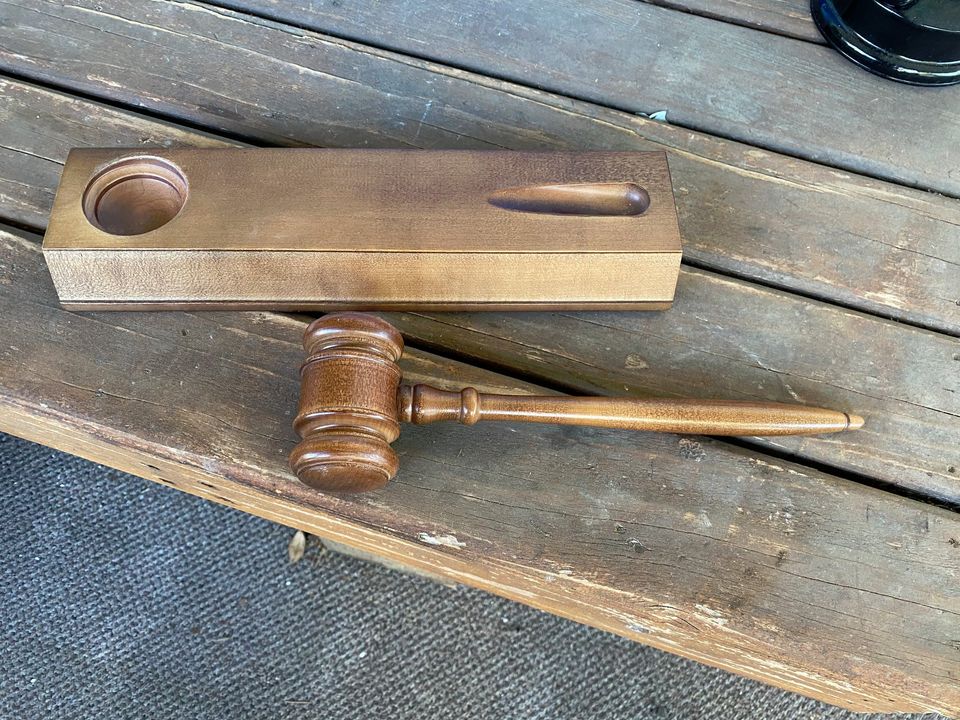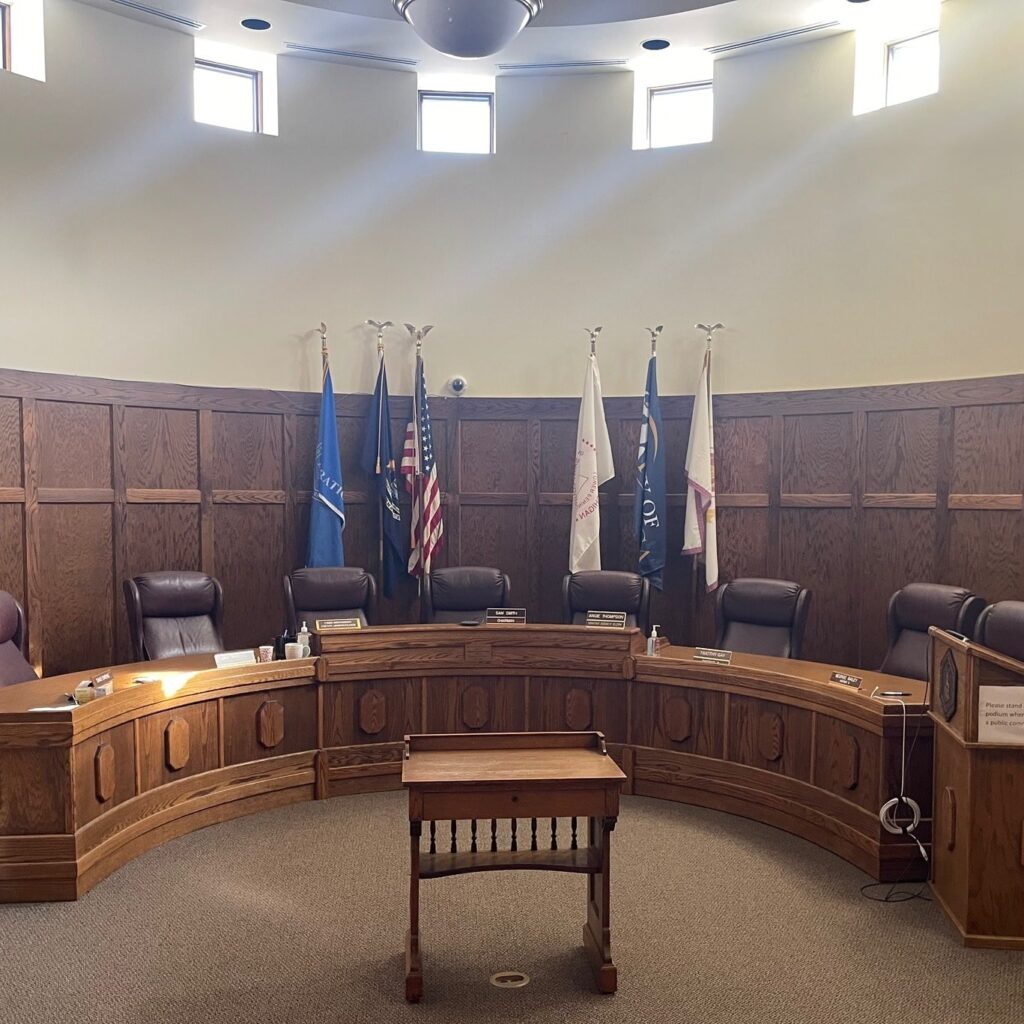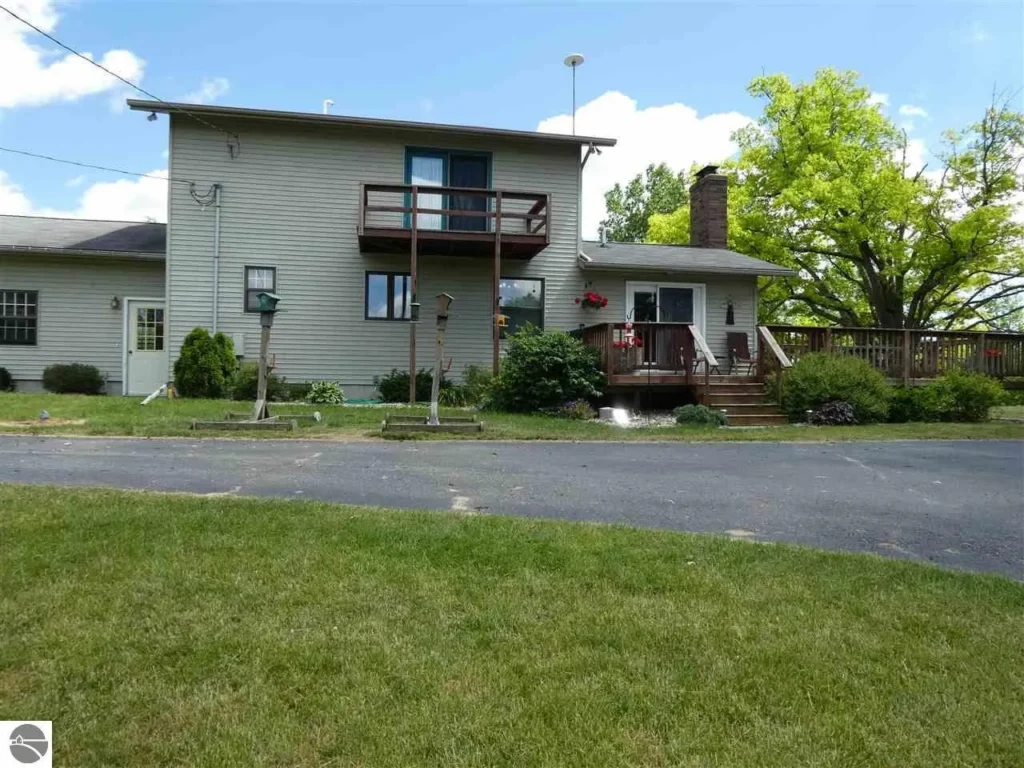Ever wondered what happens when a court orders the sale of a house? It’s not uncommon for legal disputes or financial obligations to lead to this outcome. When a court mandates the sale of a property, it can be an overwhelming and confusing experience for all involved parties. Understanding the reasons behind such decisions and navigating through the ensuing procedures is essential. We’ll explore how these situations arise, what steps are typically involved in executing the sale, and offer insights into potential outcomes for those affected by this legal directive. In this article Court Order to Sell a House we will explore all your need to know about homes and court proceedings.

Understanding the Legal Grounds for a Court-Ordered Sale
Reasons for Court-Ordered Sales
Court-ordered sales serve as a means to resolve disputes over jointly owned property. These situations often arise in cases of divorce, partition actions, and ownership conflicts. For instance, during a divorce, if the former spouses cannot agree on how to divide their property, a court may order the sale of the house to ensure an equitable distribution.
In other instances, when co-owners disagree on how to use or manage the property they jointly own, one party can file a petition with the court requesting that it issue an order for selling the house. This legal formality is known as a partition action and is commonly utilized when co-owners are unable to come to an agreement about whether or not to sell their shared property.
Court-ordered sales are also sought after in situations where there’s uncertainty regarding ownership rights. For example, if multiple parties claim ownership of a particular property but cannot reach an amicable resolution among themselves, seeking legal intervention through a court order becomes necessary.
The Process of Obtaining a Court Order
The process typically begins with one party filing a petition. The court will then outline the reasons why they believe it’s necessary for a house to be sold under judicial supervision. Upon receiving this request, the judge evaluates all evidence presented by both parties before making any decisions.
If it’s determined that there are valid grounds for ordering the sale, such as unresolved disputes or irreconcilable differences between joint owners or disputing parties involved in lawsuits over ownership rights, then the judge will mandate that the house be sold through appropriate legal channels.
Once this decision has been made and documented in writing by the court, steps will be taken. This will include steps towards listing and marketing the property for sale. These steps will be in order according to specific legal requirements set forth by local laws governing such transactions. It’s important to note that throughout this entire process until finalization of sale proceedings and transfer of title deeds post-sale completion; all activities related must adhere strictly within prescribed guidelines stipulated under law.
Navigating Divorce and Court-Mandated Property Sales
Legal Implications
When a couple goes through a divorce, the division of assets often includes the sale of property. A court order to sell a house is common in such cases. Understanding the legal implications is crucial for both parties involved. Each state has its own laws regarding property division during divorce proceedings.
It’s essential to consult with a legal professional. One who specializes in family law to fully comprehend the legal aspects of court-ordered property sales. This ensures that both parties are aware of their rights and responsibilities throughout the process. The legal expert can provide guidance on how to proceed according to state-specific regulations.
In some instances, one party may want to keep the house while the other prefers selling it. When this happens, it’s vital for both individuals to understand that they must adhere to the court’s decision. The court decides whether they need to sell or retain ownership of the property. Disregarding this could lead to serious consequences, including being held in contempt of court.
Adhering to Court Decisions
Once a court order mandates the sale of a house as part of asset division, everyone involved must comply with this decision. Failure by either party to follow through can result in severe penalties or further legal action taken against them.
For example, if one spouse refuses to cooperate with selling an inherited house as per the court order, they may face financial repercussions or even potential jail time for defying judicial orders. It’s important for all parties involved in such situations not only understand but also respect and abide by these decisions.
Read more on our article: Inherited a Mobile Home: Title Transfer & Estate Settlement

The Partition Action Process for Jointly Owned Property
Understanding the Partition Process
When co-owners find themselves unable to reach an agreement on the disposition of a property, they can turn to the partition process. This legal procedure involves either dividing the property among the owners or selling it off entirely to resolve ownership disputes. In cases where joint owners cannot come to a consensus about what should be done with their shared property, a partition lawsuit may become necessary in order to initiate a court-ordered sale.
The partition process plays a crucial role in resolving conflicts that arise when multiple parties have ownership rights over a property. It provides an avenue for individuals who are unable to agree on how their jointly owned real estate should be used or divided. Through this legal mechanism, each party’s share and rights are determined by law rather than being left up to individual decision-making.
Steps Involved in Initiating a Court-Ordered Sale
In situations where one party wishes to sell their share of the property but other co-owners do not want to buy them out, initiating a court-ordered sale becomes essential. The first step typically involves filing a petition with the court outlining the desire for partition and requesting that the property be sold. Afterward, all involved parties must be notified of this legal action.
Once all relevant parties have been made aware of the impending lawsuit, they will have an opportunity to respond and present any objections they may have regarding the proposed sale through formal channels within specific timeframes set by law. If no resolution is reached during these initial stages, then further legal proceedings will take place leading up to an eventual court ruling on whether or not the decision for sale is warranted.
To illustrate: imagine two siblings inherit equal shares of their childhood home following their parents’ passing. However, one sibling wants to sell while the other wishes to keep it as-is due sentimental reasons–this is when seeking judicial intervention through partition becomes necessary.

Strategies for Resolving Joint Ownership Disputes
Mediation and Negotiation
When joint owners are at odds over the sale of a property, negotiation and mediation can be powerful tools in finding common ground. This approach allows both parties to express their concerns and work towards a mutually agreeable solution. For instance, if one owner wants to sell the house while the other wishes to keep it, a mediator can help facilitate discussions to explore options such as buying out the other party or setting specific conditions for selling.
Negotiation also gives each party an opportunity to consider various factors that may influence their decision. These could include financial considerations, emotional attachment to the property, or future housing needs. By openly discussing these factors, owners can gain a deeper understanding of each other’s perspectives and potentially find creative solutions that address everyone’s interests.
Seeking Legal Counsel
In cases where negotiation alone does not lead to resolution, seeking legal counsel is crucial. Understanding the applicable laws and regulations is essential for making informed decisions about how to proceed with resolving ownership disputes. A lawyer specializing in real estate law can provide valuable guidance on the rules governing joint property ownership and potential courses of action available under those rules.
Legal professionals can also assist in exploring buyout options as an alternative to a court-ordered sale. They can outline the legal steps involved in executing a buyout agreement between co-owners and ensure that all necessary documentation is properly prepared and executed according to state-specific requirements.
Understanding Rights and Obligations
A fundamental aspect of resolving joint ownership disputes involves gaining clarity on each party’s rights and obligations concerning the shared property. When facing disagreements about whether or not to sell a house through a court order, it’s critical for all parties involved to have comprehensive knowledge of their legal entitlements within this context.
For example, understanding local laws related to partition actions—legal proceedings used when co-owners cannot reach an agreement on selling jointly owned real estate—can shed light on what options are available should negotiations fail. Being well-informed about individual responsibilities regarding maintenance costs or mortgage payments associated with the property contributes significantly toward fostering transparent communication among co-owners during dispute resolution efforts.
Evaluating Buyout Options vs. Forced Sale in Property Division
Assessing Buyout Options
When co-owners find themselves in a joint ownership dispute, assessing buyout options becomes crucial. This allows them to explore the possibility of retaining ownership without resorting to a forced sale. By considering this option, co-owners can potentially avoid the complications and emotional distress associated with selling a shared property against their wishes.
Exploring buyout options involves one co-owner buying out the other’s share of the property. This could be an attractive solution if one party is financially capable and willing to take full ownership of the house. It provides an opportunity for one party to keep the property while compensating the other for their share.
Considering buyout options also offers a chance for negotiation and compromise between co-owners. It allows both parties to discuss terms that are mutually beneficial, such as determining a fair market value for the property and agreeing on payment terms.
Financial Implications Comparison
Comparing financial implications between pursuing a buyout versus opting for a forced sale is vital in property division disputes. Co-owners must carefully evaluate how each option will impact their financial standing and future stability.
Opting for a buyout may involve obtaining financing or using personal funds to compensate the other owner’s share of equity in the house. This requires thorough consideration of affordability, potential loan interest rates, and long-term financial commitments.
On the other hand, proceeding with a forced sale entails additional costs such as real estate agent commissions, closing fees, and potential repairs or renovations needed to prepare the house for sale. Co-owners should weigh these expenses against potential proceeds from selling the property when making their decision.
Assessing financial implications also involves forecasting any tax consequences associated with either option. Understanding how each choice may affect tax obligations can significantly influence decision-making during property division discussions among co-owners.
Pros and Cons Consideration
Co-owners facing joint ownership disputes should carefully consider both pros and cons before deciding between pursuing buyout options or proceeding with a forced sale:
Pros:
Retaining Ownership: Allows one party to maintain possession of cherished family homes or investment properties.
Negotiation Opportunities: Provides room for discussion regarding valuation methods, payment terms, and equitable solutions.
Potential Savings: Avoids extra costs linked with listing fees, realtor commissions, home improvements prior to selling.
If you need to sell your mobile home or stick built home quickly be sure to visit our pages below for more information
Mobile Home Offer
Stick Built Home Offer

Steps to Initiate a Partition Lawsuit for Property Sale
Filing the Lawsuit
Initiating a court order to sell a house involves filing a legal action seeking court intervention for property sale or division. Co-owners who are unable to reach an agreement on selling or dividing the property can file a partition lawsuit. This legal process requires specific steps and adherence to procedural requirements, which may vary depending on the jurisdiction.
When initiating a partition lawsuit, co-owners must first file a complaint with the court detailing their request for the sale of the property. The complaint should outline the co-ownership situation, reasons for seeking court intervention, and any attempts made to resolve the matter amicably. It’s crucial to ensure that all necessary documentation is accurately completed and submitted in accordance with local laws and regulations.
Gathering evidence is also essential at this stage. Co-owners should provide documentation supporting their claim, such as proof of ownership, any existing agreements among co-owners, communication regarding property decisions, and any attempts at reaching an agreement prior to filing the lawsuit.
Engaging Legal Representation
Engaging legal representation is critical when initiating a partition lawsuit. Co-owners should seek experienced attorneys specializing in real estate law or civil litigation. An attorney can provide valuable guidance throughout the process, ensuring that all legal requirements are met and representing their clients’ interests effectively in court.
Co-owners may benefit from consulting with their attorneys before initiating legal proceedings to assess their options thoroughly. Attorneys can offer insights into potential outcomes based on individual circumstances while advising on alternative dispute resolution methods that could potentially avoid costly and lengthy litigation processes.
Once engaged, attorneys will assist co-owners in preparing necessary documents, representing them during court hearings or mediation sessions if applicable, and advocating for their rights throughout every stage of the partition lawsuit process.
Assessing and Executing the Court-Ordered Sale
Fair Market Value Assessment
Before proceeding with a court-ordered sale of a house, it is crucial to assess the fair market value of the property. This valuation ensures that the property is sold at a price that reflects its current worth in the real estate market. Coordinating with real estate professionals can be beneficial in determining this value accurately. Their expertise and knowledge of local market conditions can aid in arriving at a reasonable assessment.
It’s important to consider various factors such as the property’s location, size, condition, and recent comparable sales in the area. These details contribute to an accurate evaluation of its worth. By obtaining a comprehensive report on these aspects, one can ensure fairness in setting the selling price for potential buyers.
Coordinating with auctioneers may also be necessary when dealing with unique or high-value properties. Auctions are often used to sell properties quickly and efficiently while reaching a wide pool of interested buyers.
Adhering to Court Directives
In executing a court-ordered sale, strict adherence to all directives provided by the court is paramount. The court will provide specific instructions regarding how the sale should be conducted and any timelines that must be followed.
Deeds outlining ownership details need careful accounting during this process as well. It’s essential to have clear records showing who has legal rights over which part of the property throughout this procedure.
Every step taken should keep in mind that it aligns with what has been ordered by the court from start till end until successful completion.
Distribution of Proceeds After a Forced Property Sale
Settling Debts and Liens
After the completion of a court-ordered sale of a property, the sale proceeds are distributed in accordance with court orders and relevant laws. One crucial step in this process is settling any outstanding debts, liens, or expenses related to the property sale. These may include mortgage balances, unpaid taxes, legal fees associated with the forced sale, and other financial obligations linked to the property.
This ensures that all financial encumbrances on the property are cleared before distributing any remaining proceeds among co-owners or stakeholders. By settling these debts first, it guarantees that each party receives their rightful share of the profits from the forced property sale without any lingering financial burdens.
For instance:
If there’s an outstanding mortgage balance on the property being sold, this would be paid off from the sale proceeds before distribution.
Any unpaid taxes or legal fees incurred during the forced sale process would also be settled at this stage to ensure a clear allocation of funds.
Equitable Allocation Among Co-Owners
Understanding how proceeds from a court-ordered property sale are distributed is essential for ensuring fair and equitable allocation among co-owners. Once all debts and expenses have been settled as part of post-sale obligations, any remaining profits are divided according to court orders and applicable laws governing such distributions.
This helps prevent disputes among co-owners by providing transparency in how profits or remaining proceeds will be apportioned after covering all necessary costs related to selling the property through a court order. It’s important for involved parties to have clarity about this process so they can anticipate their respective shares based on predetermined criteria set forth by legal authorities overseeing such sales.
In essence:
The priority lies in clearing off all outstanding debts and expenses tied to selling through a court order.
Any leftover proceeds after settling these financial obligations are then allocated among co-owners based on stipulated guidelines outlined by court orders and relevant laws.

Buying Opportunities in Court-Ordered Sales and Foreclosures
Potential Benefits
Investors or individuals seeking discounted properties can find buying opportunities in court-ordered sales and foreclosures. These types of sales often present the chance to purchase properties at a lower price than the market value. For example, when a homeowner fails to make their mortgage payments, the lender may initiate foreclosure proceedings, leading to a court order to sell the property. As a result, buyers could potentially acquire such properties at a significant discount.
Engaging with real estate agents who specialize in distressed properties is crucial for gaining insights into buying opportunities in court-ordered sales and foreclosures. These professionals have extensive experience and knowledge about these types of transactions, providing valuable guidance on available properties and potential investment benefits.
Due Diligence
Conducting thorough due diligence on properties available through court-ordered sales or foreclosures is essential for making informed investment decisions. This process involves carefully examining all aspects of the property, including its condition, liens, outstanding debts, and any legal issues associated with it. For instance, understanding if there are any existing debts or interest related to the property can prevent unexpected financial burdens after purchasing it.
Buyers should also consider the potential risks involved in purchasing properties through court-ordered sales or foreclosures. While these transactions offer attractive discounts, they may come with certain drawbacks such as limited information about the property’s condition or occupancy status.
Summary
Congratulations on making it through the complex maze of court-ordered property sales! You’ve gained valuable insights into the legal grounds for such sales, navigating divorce-related property disputes, and the partition action process. Understanding the strategies for resolving joint ownership disputes and evaluating buyout options versus forced sales has equipped you with a wealth of knowledge. Now that you’re familiar with the steps to initiate a partition lawsuit and assess the execution of court-ordered sales, you’re well-prepared to handle such situations effectively.
As you move forward, consider seeking professional legal advice tailored to your specific circumstances. Remember, knowledge is power, and being well-informed puts you in a position of strength when dealing with court-ordered property sales. Stay proactive and informed, and you’ll navigate these challenging waters with confidence!
Frequently Asked Questions
Is a court-ordered sale the same as a foreclosure?
No, they are different. A court-ordered sale is initiated through legal action, often in cases of property disputes or divorce settlements. On the other hand, foreclosure is when a lender takes possession of a property due to non-payment of the mortgage.
How does joint ownership affect the process of selling a property through court order?
Joint ownership can complicate matters if there’s disagreement over the sale. The partition action process may be used to force the sale and divide proceeds among owners. It’s crucial to understand your rights and obligations as a co-owner in such situations.
What options do co-owners have when facing disputes over selling jointly owned property?
Co-owners can explore buyout options where one party buys out the others’ share or pursue a forced sale through legal means like partition lawsuits. Mediation or negotiation should be considered first, but if no agreement is reached, legal action may be necessary.
Are there opportunities for buyers in court-ordered sales and foreclosures?
Yes, these sales can present buying opportunities due to potential discounts compared to traditional market prices. However, thorough research and understanding of associated risks are essential before considering purchasing properties from court-ordered sales or foreclosures.
How are proceeds distributed after a forced property sale through court order?
Once all expenses related to the forced sale are settled (such as legal fees and outstanding debts), any remaining proceeds will typically be divided among the co-owners based on their respective interests in the property.
You may also be interested in these articles:
Sell My Mobile Home With a Mortgage
